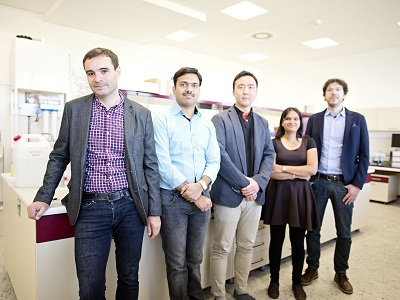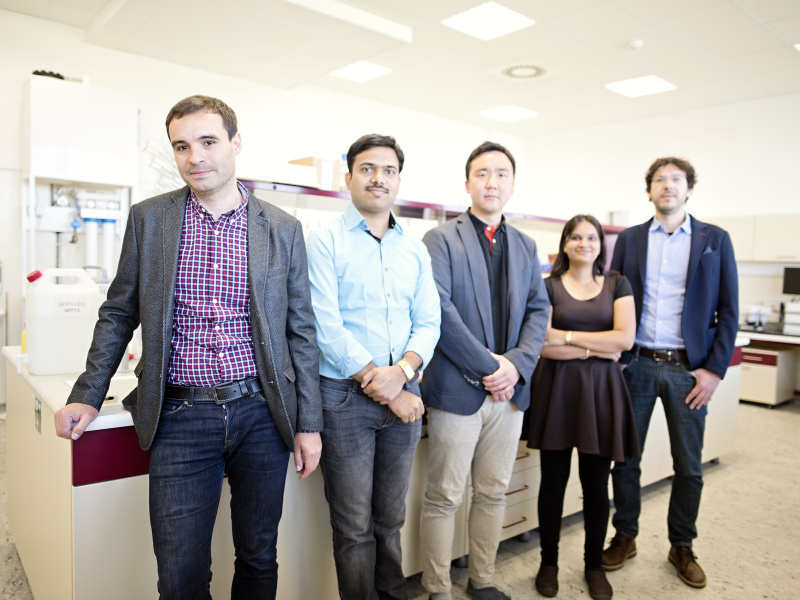A liberal centre for learning and research

Despite the rise of nationalism in the Czech Republic, Palacký University continues to welcome scholars from all over the world.

Universities in Central and Eastern Europe increasingly find themselves on the wrong side of the political divide as populist agendas take hold across the region.
According to a report released by the Tony Blair Institute for Global Change, the share of national votes that populist parties took in Eastern European elections averaged 9.2 per cent in 2000 and tripled by 2017, reaching 31.6 per cent.
Presidential elections in the Czech Republic last month did little to stave off the spread of nationalism as the incumbent, Miloš Zeman, a staunch immigration critic, beat his pro-EU rival Jiří Drahoš with 51.4 per cent of the vote.
Zeman’s victory over the former head of the Czech Academy of Sciences leaves little hope that the government will do more to expand science and research initiatives in the country, according to Jaroslav Miller, rector of Palacký University in Olomouc.
“He [Zeman] has been the president of the Czech Republic since 2013 and I haven’t noticed his interest in research at all,” says Miller.
“He’s done a great job for this country in the past but nowadays it seems to me he has nothing substantial to say.”
Still, Czech universities were pleased to see an increase of 20 per cent in funding for universities and science in the 2018 budget. And the country continues to invest more in research and development than others in the region.
According to Eurostat, in 2015, the Czech Republic committed 1.95 per cent of total GDP to R&D, more than Estonia (1.50 per cent), Hungary (1.38 per cent), Slovakia (1.18 per cent), Lithuania (1.04 per cent) and Poland (1 per cent).
“The Czech government might be criticised for many things, but the government has been investing more money recently to research and science so currently I would say that the quality of research is steadily increasing thanks to the national budget,” says Miller.
“The situation could be better, but it’s more or less satisfactory in comparison with the situation a decade ago.”
It’s important to put the rise of populism into the context of the region’s political history, Miller argues. “The period of socialism had a devastating effect and a devastating impact on the quality of research in central Europe so we are just in the process of renewing our very old tradition of scientific exploration.”
However, hostility towards immigrants, a central part of Zeman’s re-election campaign, could scupper institutions’ internationalisation efforts. Miller notes a growing distrust towards immigrants in the Czech Republic, especially people coming from Muslim countries.
“This phobia might have an impact on universities,” he says. “We have many students coming from those countries and also increasing numbers of researchers.” An anti-EU sentiment exists around the region as well, notably in Poland where the future of the country’s membership in the bloc has been called into question by the conservative nationalist government.
In Hungary, outward-looking higher education has come under direct attack by Viktor Orbán’s Fidesz government with the passage of a series of laws restricting overseas universities in the country. The Central European University in Budapest, which has ties to the US, was directly impacted by the restrictions, prompting worldwide condemnation of the laws.
Miller, an alumnus of CEU, says the situation is a classic clash between a liberal institution and an increasingly anti-liberal state. “CEU will remain deeply anchored in the landscape of central Europe, but I fear that populism is really becoming an issue not only in central Europe but in all of Europe,” he says.
At the helm of Palacký University, Miller will attempt to mitigate the encroachment of nationalist agendas by continuing to reach beyond borders. The university is expanding its joint study programmes and science initiatives with universities overseas and has signed a deal to help establish a UK university’s branch campus in Olomouc.
“It’s a mutually profitable business, because they will want to retain ties to European institutions after Brexit,” he says.

Despite growing political tensions in the region, the Czech Republic still offers more stability and academic freedom than other countries with authoritarian regimes. And Miller is determined to make Palacký a refuge for persecuted scholars, including academics fleeing imprisonment in Turkey.
“By definition a university must be a liberal institution always,” he says. “University autonomy is sine qua non of good research and good academic training. But, universities are the intellectuals and of course they are always the first target. We see that situation in Turkey currently.”